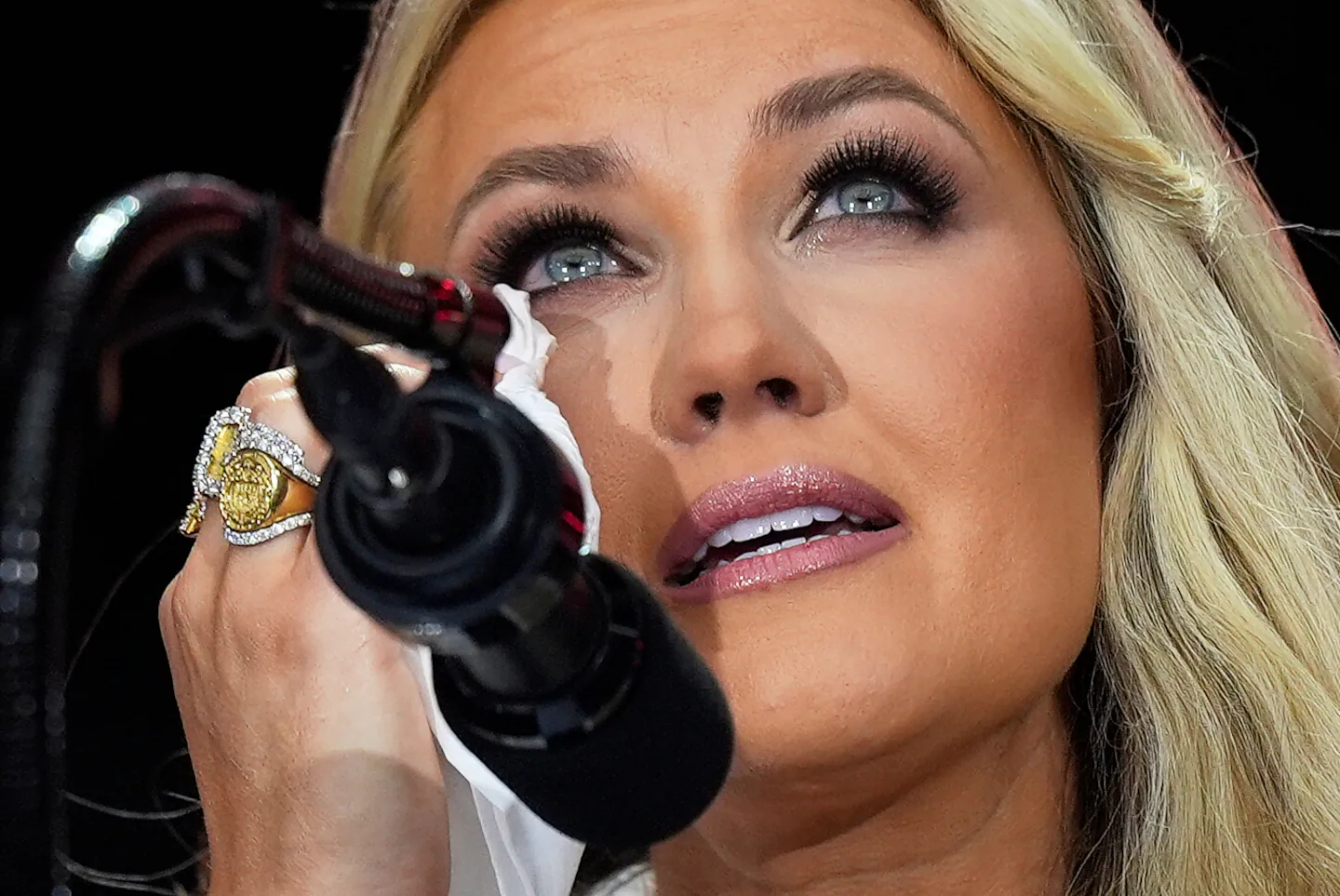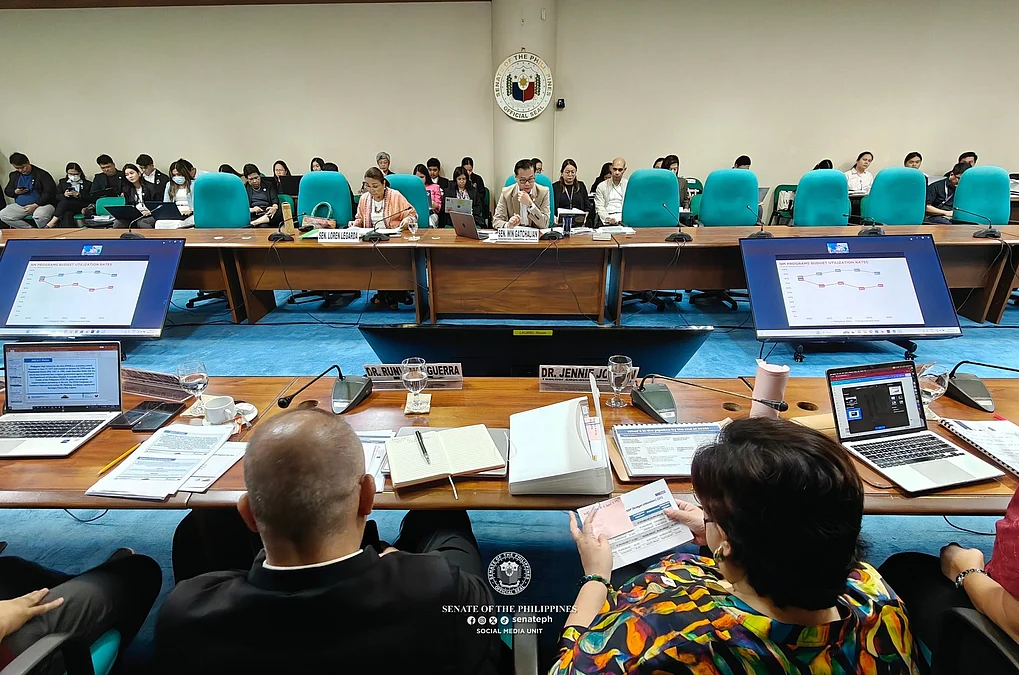
So has his widow, Erika Kirk. There is no one else in the world with a greater right to rage about Kirk’s death and an audience ready to indulge it. But she chose forgiveness instead.
“My husband, Charlie, he wanted to save young men — just like the one who took his life,” Erika Kirk said at a Sunday memorial service attended by tens of thousands of her husband’s supporters. “That young man. I forgive him. I forgive him because it was what Christ did, and it is what Charlie would do.”
Erika Kirk’s life is surrounded by partisanship, but at that memorial she made a rare choice: to put politics aside and to truly live out her faith. At a time when she had all the right to express outrage over her husband’s assassination — and a Republican commentariat ready to indulge it — she chose to love her enemy.
And as the country grapples with the question of how to end this sordid era of political violence, she has done a far better job than our leaders in laying out an off ramp: More hate won’t stop the problem. “The answer to hate is not hate. The answer we know from Gospel is love, and always love. Love for our enemies and love for those who persecute us,” she told a crowd of thousands, brought to their feet by her grace.
Forgiveness isn’t just a religious requirement — it’s a realistic path to ending political violence. In a message to students throughout Utah, Governor Spencer Cox called on them to “build a culture where we embrace differences without letting hate divide us, where hope is stronger than cynicism, and where forgiveness breaks the cycle of violence.”
Cox is right and has shown tremendous moral leadership in a time of crisis for his state. He stands apart from most of our leaders, who invoke prayer and religion only when it’s politically convenient. But that piousness seems to evaporate as soon as true sacrifice — like forgiving an enemy — is required.
President Trump basks in the evangelical fervor around his movement and relishes figures who have anointed him as a chosen savior of the country. It’s easy enough for Trump to host prayer events in the Rose Garden, to promise to bring “back religion in our country,” and to be prayed over by pastors.
But is Trump, himself, going to practice what he preaches? The answer, so far, is clearly no.
Taking the stage after Erika Kirk, the president praised her husband for engaging in dialogue with critical students and said, “he did not hate his opponents. He wanted the best for them.” But: “That’s where I disagreed with Charlie — I hate my opponent, and I don’t want the best for them.”
It’s safe to assume that Trump is speaking about his political opponents — meaning the president is speaking about hating his fellow Americans.
Trump’s presidency is the product of a pendulum of retribution: He rose up and rose up again in the midst of an oppressive progressive hold on culture, politics, and the media. He channeled the fury of a movement that was sick of being demonized by the other side. And now he’s serving up vengeance.
The problem is that retribution begets retribution. Just in the past two weeks we’ve watched the same conservative voices that decried liberal attacks on free speech cheer on the de-platforming of a clumsy comedian. Attorney General Pam Bondi threatened to prosecute “hate speech.”
Retributive justice is a never-ending cycle. And each time the pendulum swings, the fury grows. Without an act of forgiveness and a move forward, there will be a perpetual tally of political scores to settle.
Americans, some of whom continue to gather prayerfully and peacefully, don’t seem to want that fight. Even liberals have been touched by Erika Kirk’s forgiveness. Jimmy Kimmel, whose show was temporarily suspended for suggesting Charlie Kirk’s killer was a MAGA supporter, tearfully praised her message in his first monologue back on air, saying that it was “a selfless act of grace, forgiveness from a grieving widow.” “It touched me deeply” he added, “and if there’s anything we should take from this tragedy to carry forward, I hope it can be that.”
I hope so, too. Because if Erika Kirk can muster the strength to forgive her husband’s killer, then just maybe we can find a way to respect those on the other side of the aisle.



